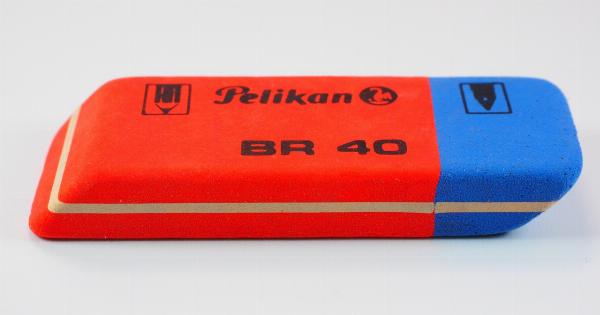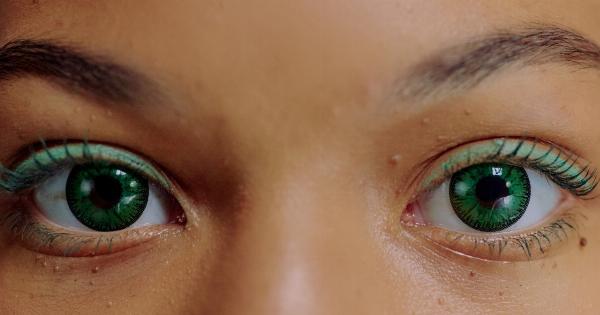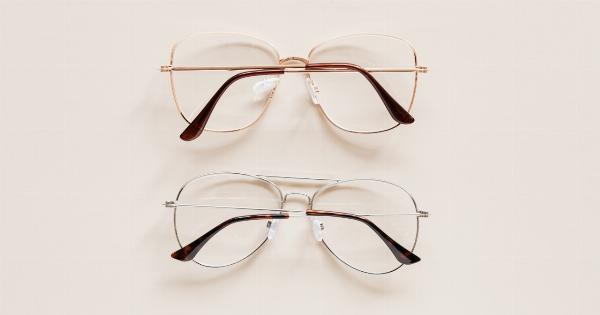Myopia, commonly known as nearsightedness, is a visual condition that affects a significant portion of the population. It causes objects in the distance to appear blurry, while close-up objects remain clear.
Fortunately, there are various options available for correcting myopia. In this article, we will explore these options and discuss the benefits they offer.
Glasses
Glasses are a popular and effective method of correcting myopia. They consist of lenses that compensate for the refractive error in your eyes, allowing you to see clearly.
The lenses are prescribed based on your specific visual needs, and they can easily be removed or replaced when necessary. Glasses provide immediate vision correction and are suitable for people of all ages.
Contact Lenses
Contact lenses are an alternative to glasses for correcting myopia. They directly sit on the surface of the eye and correct the refractive error.
Contact lenses offer several advantages, including a wider field of vision, no visual distortion due to the frame, and freedom from carrying and cleaning glasses. They require proper cleaning and maintenance, and a prescription is necessary to ensure the correct fit and type of lenses.
Orthokeratology (Ortho-k)
Ortho-k is a non-surgical method of temporarily correcting myopia. It involves wearing specially designed gas-permeable contact lenses overnight, which gently reshape the cornea while you sleep.
In the morning, after removing the lenses, you can enjoy clear vision throughout the day without the need for glasses or contact lenses. Ortho-k is particularly beneficial for individuals involved in sports or activities where wearing glasses or lenses may be inconvenient.
Refractive Surgery
For those seeking a permanent solution, refractive surgery is an option worth considering. There are various types of refractive surgeries, with LASIK (Laser-Assisted in Situ Keratomileusis) being the most popular.
LASIK surgery uses a laser to reshape the cornea, correcting the myopic refractive error. The procedure is quick, painless, and provides rapid visual recovery. However, it requires careful evaluation and consultation with an ophthalmologist to determine eligibility.
Phakic Intraocular Lens Implantation
Phakic intraocular lens (IOL) implantation is another surgical approach to correcting myopia. Unlike LASIK, which reshapes the cornea, phakic IOLs are implanted inside the eye to correct the refractive error.
This method is typically recommended for individuals with higher prescriptions or irregular corneas unsuitable for corneal surgeries. The procedure is safe and effective, offering long-lasting vision correction.
Benefits of Correcting Myopia
Correcting myopia brings numerous benefits that extend beyond clear vision. Here are some key advantages:.
Visual Clarity
The primary benefit of correcting myopia is experiencing improved visual clarity. Whether you choose glasses, contact lenses, ortho-k, or refractive surgery, you can appreciate the world around you with sharp focus and clear details.
This enhances your overall quality of life by allowing you to fully enjoy daily activities and appreciate the beauty of your surroundings.
Convenience and Comfort
Glasses and contact lenses offer convenience and comfort in different ways. Glasses provide a simple solution that you can easily put on or take off as needed. They require minimal maintenance and are suitable for people of all ages.
On the other hand, contact lenses offer freedom from wearing and cleaning glasses. They provide an unobstructed field of vision and are particularly beneficial for active individuals or those engaged in sports.
Enhanced Self-Confidence
Correcting myopia can significantly improve self-confidence and self-esteem. When you can see clearly without relying on visual aids, it boosts your confidence in social and professional settings.
Clear vision allows you to make better eye contact, increases your comfort level during conversations, and ensures you don’t miss out on any critical details. It contributes to an overall positive perception of oneself.
Improved Safety
Clear vision is essential for your safety, especially when driving or participating in activities that require good depth perception. Correcting myopia ensures that you have a clear view of the road, signs, and objects in the distance.
It minimizes the risk of accidents caused by compromised vision and enhances overall safety in various daily tasks.
Reduced Progression of Myopia
Some treatments, such as ortho-k and certain types of multifocal contact lenses, aim to slow down the progression of myopia in children and young adults. These methods can help reduce the rate at which the condition worsens over time.
By intervening early and effectively, you can potentially limit the extent of myopia and reduce the likelihood of associated complications in the future.
Conclusion
Correcting myopia offers a range of options to suit different preferences and lifestyles.
Whether you opt for glasses, contact lenses, orthokeratology, refractive surgery, or phakic IOL implantation, each method provides distinct advantages that improve visual clarity and enhance overall quality of life. By discussing your options with an eyecare professional, you can make an informed decision and start enjoying the benefits of clear vision.





























